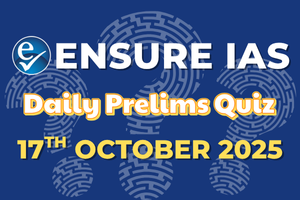Q1. Consider the following statements regarding the relationship between Fundamental Rights and Directive Principles:
- Fundamental Rights are enforceable by the courts, while Directive Principles are justiciable in the Indian constitution.
- Fundamental Rights restrict the government from taking certain actions, while Directive Principles guide the government to take action in specific areas of governance.
- The Right to Education, originally a Directive Principle, was made a Fundamental Right by the 86th Constitutional Amendment.
- Parliament can amend the Fundamental Rights to implement Directive Principles even if the amendments affect the basic structure of the Constitution.
Which of the above statements is/are correct?
Answer: A [2 and 3 only]
Explanation: Statement 1 is incorrect: Fundamental Rights are indeed enforceable by courts under Article 32, allowing individuals to seek judicial redress. In contrast, Directive Principles (under Part IV) are non-justiciable, meaning they cannot be enforced by courts but serve as guiding principles for state policy.
Statement 2 is correct: Fundamental Rights act as limitations on the powers of the state, ensuring individual liberties (e.g., right to equality, and freedom of speech). Directive Principles, however, are meant to guide the government in formulating policies aimed at social welfare and justice.
Statement 3 is correct: The 86th Amendment (2002) added Article 21A, which provides for the Right to Education as a Fundamental Right, thereby transforming it from a Directive Principle under Article 45 into an enforceable right.
Statement 4 is incorrect: While Parliament has the authority to amend the Constitution, the Supreme Court has ruled that amendments affecting the basic structure cannot alter Fundamental Rights. The balance between FRs and DPSPs must respect the Constitution’s essential framework.
